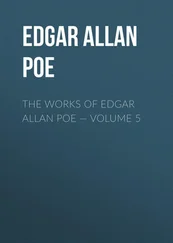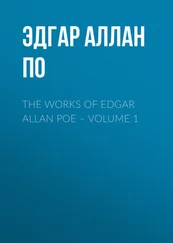Thomas Browne - The Works of Sir Thomas Browne, Volume 3
Здесь есть возможность читать онлайн «Thomas Browne - The Works of Sir Thomas Browne, Volume 3» — ознакомительный отрывок электронной книги совершенно бесплатно, а после прочтения отрывка купить полную версию. В некоторых случаях можно слушать аудио, скачать через торрент в формате fb2 и присутствует краткое содержание. ISBN: , Жанр: foreign_antique, foreign_prose, на английском языке. Описание произведения, (предисловие) а так же отзывы посетителей доступны на портале библиотеки ЛибКат.
- Название:The Works of Sir Thomas Browne, Volume 3
- Автор:
- Жанр:
- Год:неизвестен
- ISBN:http://www.gutenberg.org/ebooks/39962
- Рейтинг книги:4 / 5. Голосов: 1
-
Избранное:Добавить в избранное
- Отзывы:
-
Ваша оценка:
- 80
- 1
- 2
- 3
- 4
- 5
The Works of Sir Thomas Browne, Volume 3: краткое содержание, описание и аннотация
Предлагаем к чтению аннотацию, описание, краткое содержание или предисловие (зависит от того, что написал сам автор книги «The Works of Sir Thomas Browne, Volume 3»). Если вы не нашли необходимую информацию о книге — напишите в комментариях, мы постараемся отыскать её.
The Works of Sir Thomas Browne, Volume 3 — читать онлайн ознакомительный отрывок
Ниже представлен текст книги, разбитый по страницам. Система сохранения места последней прочитанной страницы, позволяет с удобством читать онлайн бесплатно книгу «The Works of Sir Thomas Browne, Volume 3», без необходимости каждый раз заново искать на чём Вы остановились. Поставьте закладку, и сможете в любой момент перейти на страницу, на которой закончили чтение.
Интервал:
Закладка:
History of the world.
It was improbable from the place, that is a plain in the land of Shinar . And if the situation of Babylon were such at first as it was in the days of Herodotus , it was rather a feat of amenity and pleasure, than conducing unto this intention. It being in a very great plain, and so improper a place to provide against a general Deluge by Towers and eminent structures, that they were fain to make provisions against particular and annual inundations by ditches and trenches, after the manner of Egypt . And therefore Sir Walter Raleigh accordingly objecteth: If the Nations which followed Nimrod , still doubted the surprise of a second flood, according to the opinions of the ancient Hebrews , it soundeth ill to the ear of Reason, that they would have spent many years in that low and overflown valley of Mesopotamia . And therefore in this situation, they chose a place more likely to have secured them from the worlds destruction by fire, then another Deluge of water: and as Pierius observeth, some have conceived that this was their intention.
Lastly, The reason is delivered in the Text. Let us build us a City and a Tower, whose top may reach unto heaven, and let us make us a name, lest we be scattered abroad upon the whole earth; as we have already began to wander over a part. These were the open ends proposed unto the people; but the secret design of Nimrod was to settle unto himself a place of dominion, and rule over his Brethren, as it after succeeded, according to the delivery of the Text, the beginning of his kingdom was Babel .
CHAPTER VII
Of the Mandrakes of Leah
We shall not omit the Mandrakes of Leah , according to the History of Genesis . And Reuben went out in the daies of Wheat-harvest, and found Mandrakes in the field, and brought them unto his mother Leah ; then Rachel said unto Leah , give me, I pray thee, of thy sons Mandrakes: and she said unto her, is it a small matter that thou hast taken my husband, and wouldest thou take my sons Mandrakes also? and Rachel said, Therefore he shall lie with thee this night for thy sons Mandrakes. From whence hath arisen a common conceit, that Rachel requested these plants as a medicine of fecundation, or whereby she might become fruitfull. Which notwithstanding is very questionable, and of incertain truth.
For first from the comparison of one Text with another, whether the Mandrakes here mentioned, be the same plant which holds that name with us, there is some cause to doubt. The word is used in another place of Scripture, Cant. 7. when the Church inviting her beloved into the fields, among the delightfull fruits of Grapes and Pomegranates, it is said, The Mandrakes give a smell, and at our gates are all manner of pleasant fruits. Now instead of a smell of Delight, our Mandrakes afford a papaverous and unpleasant odor, whether in the leaf or apple, as is discoverable in their simplicity or mixture. The same is also dubious from the different interpretations: for though the Septuagint and Josephus do render it the Apples of Mandrakes in this Text, yet in the other of the Canticles , the Chaldy Paraphrase termeth it Balsame. R. Solomon , as Drusius observeth, conceives it to be that plant the Arabians named Jesemin. Oleaster , and Georgius Venetus , the Lilly, and that the word Dudaim may comprehend any plant that hath a good smell, resembleth a womans breast, and flourisheth in wheat harvest. Tremelius interprets the same for any amiable flowers of a pleasant and delightfull odor: but the Geneva Translators have been more wary then any: for although they retain the word Mandrake in the Text, they in effect retract it in the Margin: wherein is set down the word in the original is Dudaim , which is a kind of fruit or Flower unknown.
The vegetables in H. Scripture how variously expounded.
Nor shall we wonder at the dissent of exposition, and difficulty of definition concerning this Text, if we perpend how variously the vegetables of Scripture are expounded, and how hard it is in many places to make out the species determined. Thus are we at variance concerning the plant that covered Jonas ; which though the Septuagint doth render Colocynthis, the Spanish Calabaca, and ours accordingly a Gourd: yet the vulgar translates it Hedera or Ivy; and as Grotius observeth, Jerom thus translated it, not as the same plant, but best apprehended thereby. The Italian of Diodati , and that of Tremelius have named it Ricinus , and so hath ours in the Margin, for palma Christi is the same with Ricinus . The Geneva Translators have herein been also circumspect, for they have retained the Original word Kikaion , and ours hath also affixed the same unto the Margin.
Nor are they indeed alwayes the same plants which are delivered under the same name, and appellations commonly received amongst us. So when it is said of Solomon , that he writ of plants from the Cedar of Lebanus, unto the Hysop that groweth upon the wall, that is, from the greatest unto the smallest, it cannot be well conceived our common Hysop; for neither is that the least of vegetables, nor observed to grow upon wals; but rather as Lemnius well conceiveth, some kind of the capillaries, which are very small plants, and only grow upon wals and stony places. Nor are the four species in the holy oyntment, Cinnamon, Myrrhe, Calamus and Cassia, nor the other in the holy perfume, Frankincense, Stacte, Onycha and Galbanum, so agreeably expounded unto those in use with us, as not to leave considerable doubts behind them. Nor must that perhaps be taken for a simple unguent, which Matthew only termeth a precious oyntment; but rather a composition as Mark and John imply by pistick Nard , V. Mathioli. Epist. that is faithfully dispensed, and may be that famous composition described by Dioscorides , made of oyl of Ben, Malabathrum, Juncus Odoratus, Costus, Amomum, Myrrhe, Balsam and Nard; which Galen affirmeth to have been in use with the delicate Dames of Rome ; and that the best thereof was made at Laodicea ; from whence by Merchants it was conveyed unto other parts. But how to make out that Translation concerning the Tithe of Mint, Anise and Cumin, we are still to seek; for we find not a word in the Text that can properly be rendred Anise; the Greek being ἄνηθον, which the Latines call Anethum , and is properly Englished Dill. Lastly, What meteor that was, that fed the Israelites so many years, they must rise again to inform us. Nor do they make it out, V. Doctissimum Chrysostom. Magnenum de Manna. who will have it the same with our Manna; nor will any one kind thereof, or hardly all kinds we read of, be able to answer the qualities thereof, delivered in the Scripture; that is, to fall upon the ground, to breed worms, to melt with the Sun, to taste like fresh oyl, to be grounded in Mils, to be like Coriander seed, and of the colour of Bdellium.
Again, It is not deducible from the Text or concurrent sentence of Comments, that Rachel had any such intention, and most do rest in the determination of Austin , that she desired them for rarity, pulchritude or suavity. Nor is it probable she would have resigned her bed unto Leah , when at the same time she had obtained a medicine to fructifie her self. And therefore Drusius who hath expresly and favourable treated hereof, is so far from conceding this intention, that he plainly concludeth, Hoc quo modo illis in mentem venerit conjicere nequeo ; how this conceit fell into mens minds, it cannot fall into mine; for the Scripture delivereth it not, nor can it be clearly deduced from the Text.
Читать дальшеИнтервал:
Закладка:
Похожие книги на «The Works of Sir Thomas Browne, Volume 3»
Представляем Вашему вниманию похожие книги на «The Works of Sir Thomas Browne, Volume 3» списком для выбора. Мы отобрали схожую по названию и смыслу литературу в надежде предоставить читателям больше вариантов отыскать новые, интересные, ещё непрочитанные произведения.
Обсуждение, отзывы о книге «The Works of Sir Thomas Browne, Volume 3» и просто собственные мнения читателей. Оставьте ваши комментарии, напишите, что Вы думаете о произведении, его смысле или главных героях. Укажите что конкретно понравилось, а что нет, и почему Вы так считаете.












